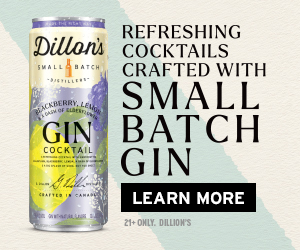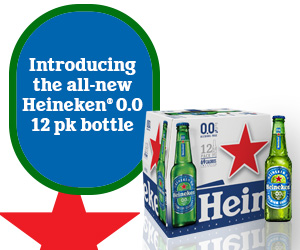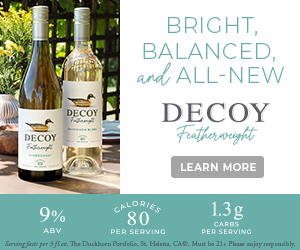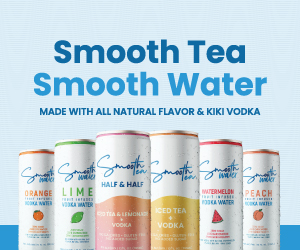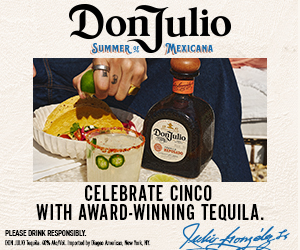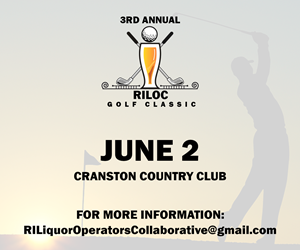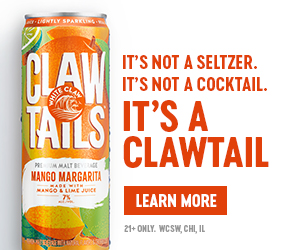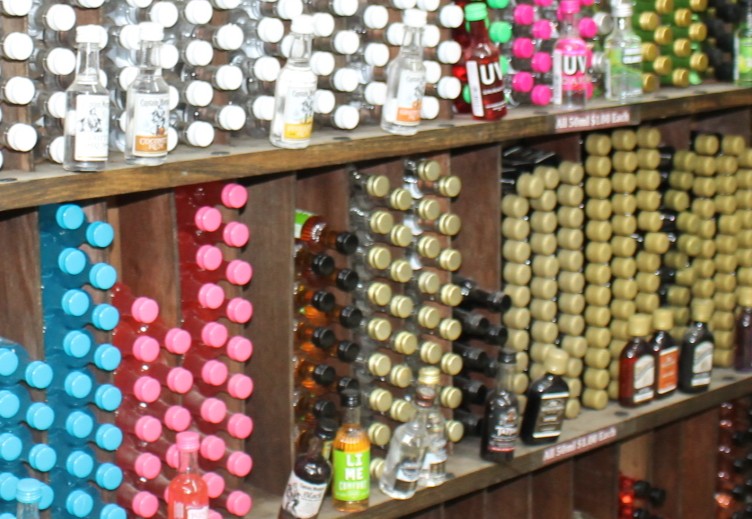
By Sara Capozzi
A proposed bill to ban the sale of 50-ml liquor bottles (aka “nips”) is again before the Connecticut State Legislature’s General Law Committee for the 2025 session, which, if passed, would outlaw their sale throughout the state. While previous proposed bills have focused more on the environmental toll of nips, House Bill 6288, An Act Concerning Nips, seeks to eliminate them in the hopes of reducing impaired driving as well as litter, with its goal “to remove a persistent source of litter in municipalities and reduce a concealable source of alcohol.” A similar bill, HB 5235, was written by Rep. Jaime Foster (D-Ellington), whose constituents voiced concerns over people driving under the influence and road safety and related fatalities. But would banning nips alone decrease incidents of drunk driving?
“It is hard to tell if it would have a reduction,” said Sean Hughes, Account Director, Connecticut Package Stores Association (CPSA). “A lot of these wrong-way driving incidents where the driver is intoxicated usually happen late at night. I think the greater issue is being able to see the level of impairment for those that are using THC products. A majority of the wrong-way drivers seem to have alcohol and THC in their system when they are tested if there is a fatal crash. The sponsor of this year’s nip ban bill put in the bill at the request of a constituent whose husband was killed by a drunk driver.”
“I don’t think that there’s any evidence that nips are more responsible for drunk driving than consuming alcohol from a container of a different size,” said Larry Cafero, Executive Director and General Counsel, Wine & Spirit Wholesalers of Connecticut. “I don’t think there’s been any data that I’ve seen that shows nips are more responsible for people drinking in their car than not … Drunk driving is a serious problem regardless of the size of the container; it’s what’s inside the container and the mentality of the individual that causes one to overdrink and get behind the wheel of a car, not so much the size of the container.”
Last year’s bill, which, if passed, would have left the banning of the 50-ml bottles up to the discretion of individual municipalities, failed to advance after its February 2024 hearing and was never brought to a vote. Opponents argued that banning small-format bottles in one town wouldn’t necessarily decrease litter if customers could still buy them in neighboring towns.
The alcohol industry pays five cents per liquor bottle sold, which is allocated toward cleanup and anti-litter efforts. Through this program, called The Nickel Per Nip Environmental Fee, which began on Oct. 1, 2021, more than $13.5 million was generated for cities and towns across Connecticut, according to Cafero, who shared the data and program results in a November 2024 media announcement. Cafero also said that the revenue for the latest reporting period—April 1 through Sept. 30, 2024—was $2.4 million, an increase of approximately $77,000 over the same time period in 2023.
“While I do believe something needs to be done about handling litter overall, the only industry being targeted with a ‘ban’ of any kind is adult beverage,” said Girish Patel, Director, Executive Committee, Indian American Package Store Association. “It’s certainly not the only plastic waste we see, yet it’s the only product which directly taxes those who litter. Specifically, the five-cent environmental fee tied to each nip sold. Moreover, it’s one of the few statewide fees that goes right back to the point of purchase, giving municipalities the opportunity to deploy the funds toward cleanup efforts.”
“This is an innovative solution that we have yet to see offered by any other producer, supplier or retailer of plastic waste generated from consumable products,” he continued. “It would be refreshing to see other industries propose solutions to their litter issues or legislative proposals requiring accountability to do so, prior to any unfair targeting of [nips].”
While some package store owners have stated in the past that eliminating nips from their inventories could negatively impact sales, others argue that if they were outlawed, drinkers would just replace them with the next largest format. “We don’t make a lot of money from nips,” said Bhavna Patel, Owner, Candid Wine & Spirit in North Haven. “We have to carry them because customers are looking for them, but they’re more work than they’re worth. I think if the government does take nips away, then people are just going to go to the 100- and 200-ml bottles.”
“I served in the legislature for 22 years,” Cafero said. “We’re not in the practice of banning products … Do we ban a product because of its size? And if we allow that kind of banning, would we go to banning certain flavors? When does it stop?”
Previous bills have failed to make it through to a vote. “I have been told by numerous legislators and staff that the nip ban proposal might not have as much traction as some news articles would have the public believe,” Hughes said. “With that being said, CPSA and the rest of the industry have to treat every bill at the General Assembly with a serious tone. It is not wise to underestimate the movement a bill can get if the advocates for the ban are lobbying legislators. Thankfully the industry has a great coalition of partners that do an excellent job of advocating in the halls of the State Capitol during the session.”
As of press time, House Bill 6288 was referred to the Joint Committee on Environment on Jan. 23, 2025.


